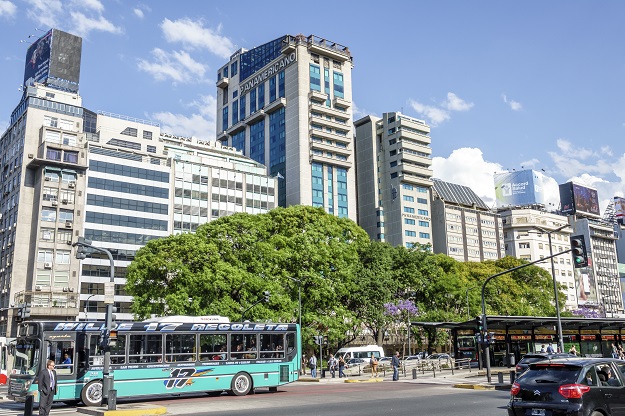BUENOS AIRES – For a glimpse of the future, take a look at the challenges facing global cities today. According to the World Economic Forum, more than two thirds of world GDP is already produced in urban areas, and by 2050 the same portion of the world’s population will live in cities.
That means that when activists in São Paulo come up with an innovative way to fight traffic, or policymakers in Panama City find new ways to promote sustainable development, they’re not just coming up with solutions to local problems – they’re charting a global course for smarter growth.
That is part of why Buenos Aires and Paris have launched the Urban 20, a group that brings together mayors of 26 global cities belonging to Group of Twenty (G20) countries to enrich the dialogue of these nations with an urban perspective. Buenos Aires, São Paulo, Rio de Janeiro and Mexico City are members. All told, the Urban 20 cities are home to more than 153 million, producing more than $10.5 trillion in goods and services.
The inaugural Urban 20 Summit, taking place this week in Buenos Aires, will also include Medellín, Fortaleza, Quito, Montevideo, Panamá, La Paz and Asunción as observer cities. The summit marks an opportunity for Latin American cities to participate in the debates that will shape the world we live in for decades.
The meeting marks the first time in history that cities will contribute their urban perspective to the G20, and the challenges they face could not be more consequential. The Urban 20 mayors have defined five priorities: climate action, social integration, women’s empowerment, access to financing at the subnational level, and the future of work, which will be the topic of discussion at AQ’s Oct. 31 event on the sidelines of the summit.
Making concrete progress on such complex global issues requires collaboration at all levels of society. Large cities across the world often have a lot in common between them; dialogue among these cities is essential. A recent OECD report highlights the role peer cities and regions can play in helping the world achieve the United Nations’ Sustainable Development Goals for 2030.
To that effect, the cities gathered at the Urban 20 summit have committed to concrete plans for progress. To start, Urban 20 cities will seek to step up climate ambition by fully implementing the Paris Agreement, and by asking nations to support cities commitments to build resilience. Cities in Latin America are already dealing with the reality of climate change, and progress in reducing greenhouse gases is fundamental to the region’s long-term prosperity. The Urban 20 cities will also seek the collaboration of nations to develop and implement education, training, skill-building, apprenticeship systems, and employment programs to empower citizens for future labor markets.
Finally, the Urban 20 Cities have committed to work proactively to make societies more inclusive, welcoming, peaceful, safe, and discrimination-free. This includes fostering civic participation in policymaking, neighborhood planning, and city governance to ensure all citizens are represented in decision-making processes. At the same time, Urban 20 mayors will work to ensure that women and men have the same rights and the same opportunities to develop their potential in cities.
To a large extent, the solutions that cities find for the challenges posed by development – as diverse as climate change, social integration or the future of work – will shape the future in which we will live in. Urban 20 is a historic effort of cooperation between cities and nations to ensure a sustainable future.
—
Straface is the secretary general and secretary of foreign affairs for the Buenos Aires city government







